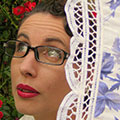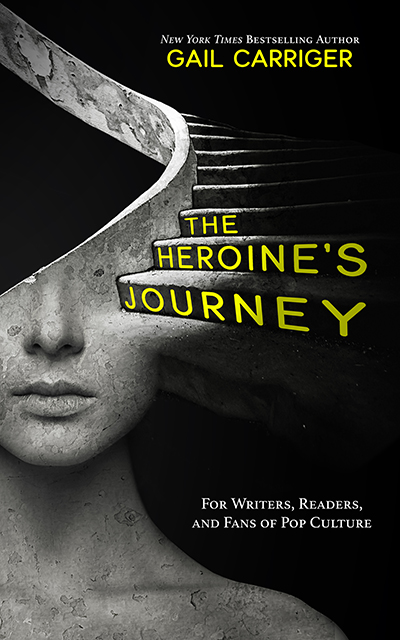So, Gentle Reader, I’m not one of those authors who prattles on about writing being some sacred undertaking you simply must to do for yourself and no author should give another advice and blah blah blah.
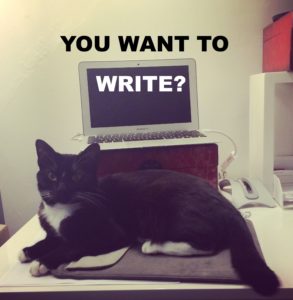
True, some of us writers are beret-wearing cognac-swilling arteests, but most of us are sweatpants-sporting caffeine-addicted artisans. We write because it’s a job, and, that, Gentle Reader, isn’t very romantic.
- I believe you can learn to write.
- I believe that it is a craft.
- And I believe you are perfectly capable of deciding whether to heed someone’s advice or not.
I used to say…
“I don’t get writer’s block”
…but what I think is more accurate is that I have work-arounds that cause writer’s block to be more transient for me.
In others words, I categorically refuse to believe in writer’s block.
So here you go, I am going to dole out advice.
Take it, or don’t.
What to do if you get writer’s block?
- Outline.
No really, just flipping write one. (You can call it a “treatment” if the word “outline” scares you.) Miracle of miracles an outline tells you where to go next plot-wise. If the current scene isn’t working, you can move on to the next scene and come back later. Some authors hate outlines. An entirely unscientific survey has shown that these authors are 80% more likely to suffer from writer’s block, and 90% more likely to be stuck with a major rewrite. (Yeah, I just totally made that up, but it sounds good.) - Switch POVs.
I sometimes write multiple POVs (yes, I know I’m doing it, no, I don’t care, call me a risk taker, ah-cha-cha). If one POV character isn’t playing nice, I switch to a different one. Although, be warned, you can loose original voice this way and you may have to fix it later. - Introduce a new character, stage right.
You can always edit them out later. But sometimes a scene needs new energy ~ I always get mine from characters and dialogue. Make them amusing enough and no one cares if they’re superfluous, and they may turn out to be vital later. - Have an argument.
No matter how well matched or friendly, your characters must disagree on something. They could even argue about where to go next. I love doing dialogue so this is a fall back position for me (truth be told, I also love arguing). Don’t forget, arguments can also be internal ~ Nicole Peeler is the master of the inner quandary. - Drop something out of the sky.
No, literally. (Ha, a double pun, I kill me.) AKA have something explode, or crash, or jump out with a knife. You don’t have to know why it happens, not yet, but it will certainly move things along. - Describe more.
I hate this one but sometimes learning more about the atmosphere around your characters causes something new to pop out. I default to describing fashion, but whatever works, right? - Read something nonfiction.
Depending on what kind of story you write sometimes an article from a nonfiction author is the way to go, social science, scientific, anything tangential to your book might spark inspiration. - You might be writing the wrong core narrative.
More and more as I talk to beginning writers, I’m learning that some are writing heroine’s journeys but are trying to squeeze their main character into the guise of a hero, or visa versa. Your characters and story will start to fight you if this is the case. My advice? Learn the difference! - Take a walk.
Go outside if you can, stretch your legs, take a break. Even just stilling int he back yard. Just change your environment a little. - Put yourself in a place where you can’t write.
Take a shower, start baking, take a drive. Anything where it’s inconvenient to pause and reach for a notebook. Trick your brain into thinking it can’t write, they it will likely come up with strokes of genius.
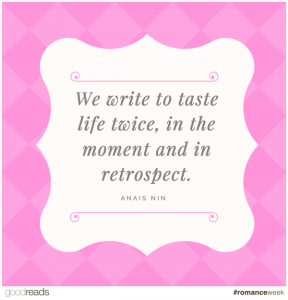
Even if none of the above solutions make sense for your story, at least they keep you writing. These are tools for the writer, not necessarily the book.
Not everything has to be perfect right away, you can always go back and change it, or delete it entirely, later. This it your story, you are the absolute master of it.
I used to be a pretty bad “starter but not finisher” of novels, and I think it was because once I had introduced a character I got bored with her (or him). Now I simply keep throwing things at them because I realized that they have more to tell me than I originally thought.
So, those are my tips. Use them at your own peril.
Other People Words On This Subject!
- How to Outsmart Writer’s Block with Neuroscience
- How You Can Give Writer’s Block The Boot In Minutes
10 More Installments of Gail talking about publishing?
- 10 Things About Publishing This Author Wishes Everyone Knew
- 30+ Blogs & Podcasts for Authors
- What is an author style guide? How about a style sheet?
- How to Write (and Not to Write) an Author Bio
- The Pros & Cons of Cons
- 7 Side Effects of Being a Full Time Author
- Pen Names, Cover Art & Reader Betrayal
- Plot Versus Pace (Why That Book Sucks)
- Learn to Let Go of the 10%
- Writing Humor
BOOK DE JOUR
- Tired of the hero’s journey?
- Frustrated that funny, romantic, and comforting stories aren’t taken seriously?
- Sad that the books and movies you love never seem to be critically acclaimed, even when they sell like crazy?
The Heroine’s Journey is here to help.
Multiple New York Times bestselling author Gail Carriger presents a clear concise analysis of the heroine’s journey, how it differs from the hero’s journey, and how you can use it to improve your writing and your life.
Your Writerly Tinctures . . .
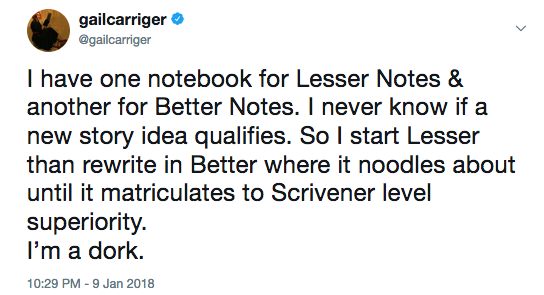
Book News:
Old rave review of Soulless, but still honest, from Alpha Reader.
“I have an inkling that Gail Carriger will become a ‘must-read’ author for me. I will faithfully read whatever she writes, even if it’s not Steampunk or an Alexia Tarabotti book.”
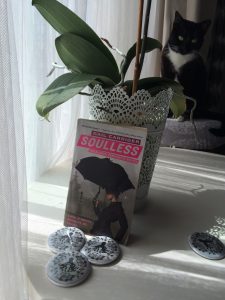
Quote of the Day:
“If you haven’t got an idea, start a story anyway. You can always throw it away, and maybe by the time you get to the fourth page you will have an idea, and you’ll only have to throw away the first three pages.”
~ William Campbell Gault
Tags: Beginning Writers